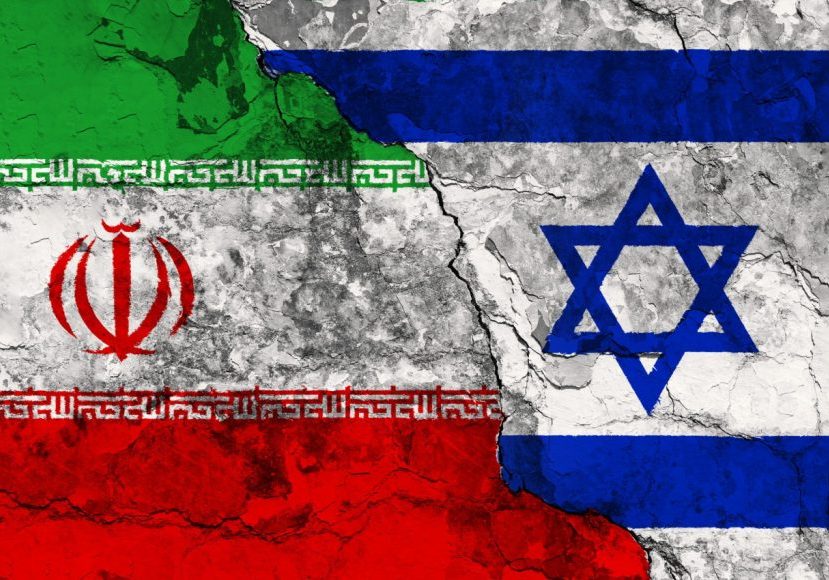IN THE MEDIA
The problematic Palestinian unity government deal
Mar 9, 2012 | Colin Rubenstein

Colin Rubenstein
The Drum (ABC online) – 9 March 2012
The prospects for Palestinian unity appeared to have taken a step forward last month in Doha, Qatar when rival Palestinian factions, Fatah and Hamas, agreed in principle that current Palestinian Authority (PA) president Mahmoud Abbas should also assume the role of prime minister in an interim government.
However, while the fractured rule of the Fatah-dominated PA in the West Bank and the Hamas-led Gaza Strip has been an obstacle to a two-state peace solution with Israel, it does not follow that this move towards Palestinian unification will improve the chances for peace. On the contrary, though the prospect of a functioning Palestinian unity government is by no means assured and indeed looks like being postponed yet again, even if it can be realised, any such government may carry with it dangerous implications.
Last year, Fatah and Hamas agreed to an Egyptian-brokered power-sharing agreement. That deal has proved difficult to implement. Fatah and Hamas deeply distrust one another, bear considerable bad blood from past conflicts and carry fundamentally different visions for the character of a future Palestinian state.
Disagreements about the make-up of a planned ‘technocratic government’ and Hamas opposition to the current reformist prime minister Salam Fayyad have reflected these differences.
Not surprisingly, in recent days we have seen top Fatah and Hamas officials continue to blame one another over the lack of progress in implementing the Doha understandings. Yet the problems with the agreement are not merely technical.
President Abbas and his emissaries insist that Hamas agreed at Doha to accept all previous agreements signed between the Palestinians and Israel, and accept the premise that being part of a united Palestinian government means recognising Israel. Tellingly, Hamas officials themselves have repeatedly denied this.
Moreover, Hamas’s various leaders have failed to unite behind the Doha deal as signed by Hamas leader-in-exile, Khaled Meshaal. Senior Hamas officials in the Gaza Strip including Gazan Hamas leader Ismail Haniyeh and Mahmoud al-Zahar have criticised the agreement, and further signs soon emerged of a growing split within the movement.
Only days after Meshaal inked his pact with Abbas in Doha, Haniyeh was in Teheran pressing the flesh with Mahmoud Ahmadinejad and supreme leader Ayatollah Ali Khamenei. During his visit, Haniyeh vowed that Hamas “will never recognise Israel… The resistance will continue until all the Palestinian land, including Al-Quds [Jerusalem], is liberated.”
Later, he declared the “gun is our only response to [the] Zionist regime… we can obtain our goals only through fighting and armed resistance and no compromise should be made with the enemy.”
Meanwhile, Hamas’ recent decision to break from Syrian president Bashar Assad and abandon its headquarters in Damascus has cast its diaspora leadership adrift and looking for a new home. In addition, Meshaal has recently said he would not run for re-election, raising more questions over his authority as a lame duck leader.
These are some of the unknown variables for the near future. What is clear today, however, is that rather than embracing compromise, Hamas as a whole is gaining confidence due to the ascendancy of regional Islamist movements, including the Muslim Brotherhood in Egypt, Tunisia and potentially the new ruling party in Libya. Hamas views the changes brought on by the Arab Spring as empowering for itself while weakening the PA and Israel. Until recently most Arab countries had shunned Hamas, but now the emerging Islamist regimes are reaching out to them.
While the media has framed the current rift in Hamas as a disagreement between moderates and hard-liners, in actuality, the split may be more tactical than ideological. What is important to understand is that neither of Hamas’s potential suitors – be they the Shias of Iran or the Muslim Brotherhood Sunnis of Egypt, Jordan, Qatar and elsewhere – are asking Hamas to abandon its rejectionist ways.
If the Doha agreement was not about moderation or compromise for Hamas, what was its motivation?
Hamas sees a Palestinian unity government as a way to launder its image while at the same time gaining an opportunity to hijack the direction of Palestinian national movement in the next election. It also does not want to be seen as the obstacle to unity in the eyes of the Palestinian people.
For Fatah, the potential upsides of the deal are more obvious. With no way to physically dislodge Hamas from Gaza and having failed to marginalise it, Abbas hopes such a deal can lead to a bloodless reconsolidation of power in Ramallah.
In response to the Doha agreement, the US State Department has reminded the Palestinian government of its obligations to recognise three key principles as outlined by the Mideast Quartet: the renunciation of violence, the recognition of Israel and acceptance of previous agreements between Israel and the PA. However, the White House has adopted a wait-and-see attitude as to whether Hamas’s inclusion in a unity government will violate these principles.
It would be a profoundly positive step towards the prospects of peace if Hamas were to genuinely accept the Quartet’s principles, and a constructive re-unification would need to be on that basis. Unfortunately, Hamas has made it clear this has not been the case.
Instead, we are left with a more disturbing reality. Abbas, whose negotiating team broke off talks with Israel only days before Doha, is forsaking the negotiating table for the goal of a unity government with a Hamas that is still committed to Israel’s destruction. Palestinian unity of this sort will not serve the interests of peace. Rather, it will embolden Hamas, jeopardise the PA’s Western aid of approximately one billion dollars, and prolong the Israeli-Palestinian conflict by making reconciliation all the more difficult.
Dr Colin Rubenstein is Executive Director of the Australia/Israel & Jewish Affairs Council.
Tags:











